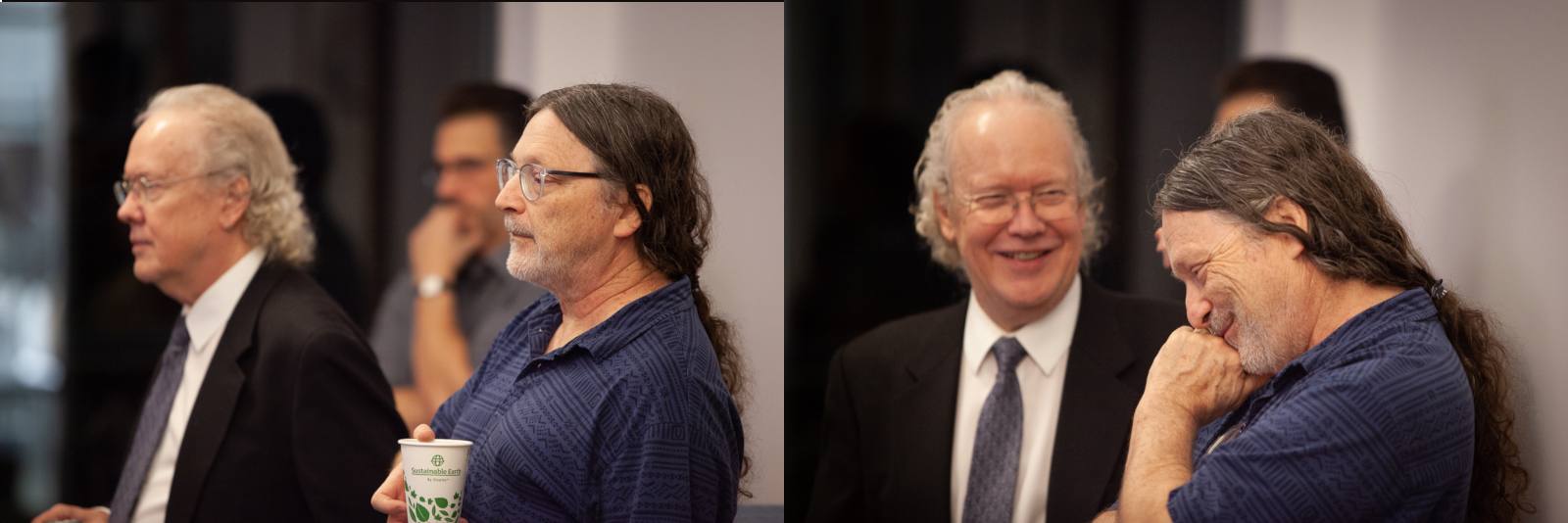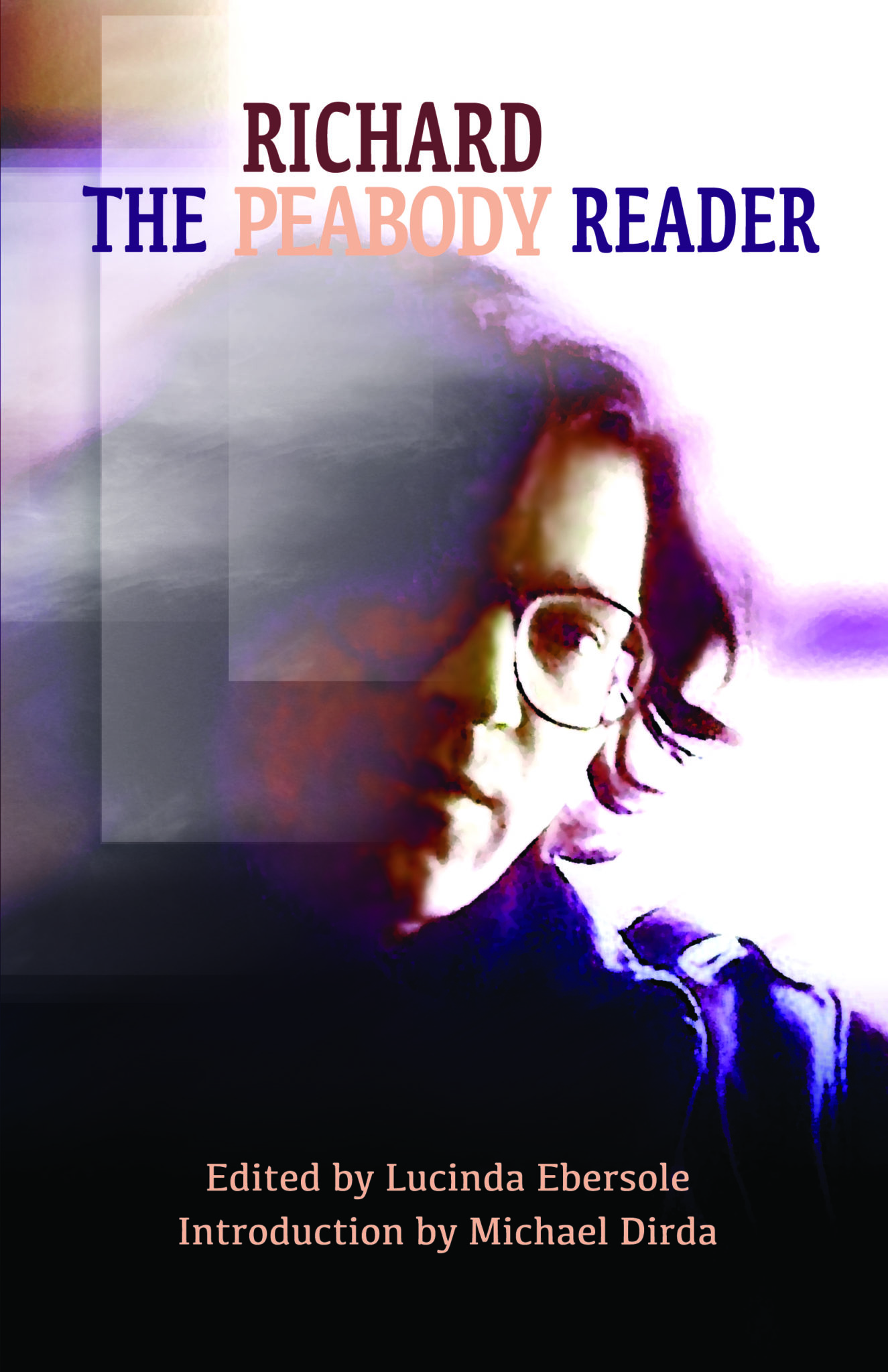Who's Afraid of Richard Peabody? An Introduction to the Indie Legend
As Small Press Week approaches we decided to take some time to pay tribute to one of the original indie lit heroes in Richard Peabody.

This year's Small Press Week (sponsored by our friends over at SFWP) will run from November 30th to December 6th. Since Alan Squire Publishing is 1.) a small press (big ideas notwithstanding) 2.) runs the Legacy Series, a project dedicated to longtime friends of indie publishing and 3.) since we publish the Godfather of indie literature in DC, founder of Gargoyle, writer extraordinaire, former editor of Grace and Gravity, Richard Peabody, we thought there was no better a time than now to take a more in-depth look at Peabody's life and work. Because The Peabody Reader, our first installment in the Legacy Series, is a compendium of many of Richard's most beloved work from throughout his career and a chronicle of his evolving thought, we've decided to share bits and pieces from the book this week, but we wanted to start it all off with a small introduction to Peabody for anyone who is not familiar with his reputation in DC.
Back in 2011, Lora Engdahl wrote a piece called "Main Character: Richard Peabody has devoted his life to Washington's writers. At what cost?" for the Washington Post which included a mostly thorough examination of Peabody's history in the DC area.
Engdahl's focus is 'Peabody as The Underground Man' and her thesis, that Washington DC literature is alive and well thanks to hidden figures like Richard Peabody who eschew focus from their own career in order to buoy other writers to wider attention. She develops this thesis by examining Peabody's extremely successful Magazine (read: successful artistically for a number of reasons and not monetarily for a million more) which he co-founded in 1976 and runs to this day, Gargoyle.
In her article she highlights how WAPO book critic and literary gatekeeper Jonathan Yardley both disparages the grassroots Washington literary scene as shambolic, inchoate, and homeless, while waxing on, as a counterpoint, about writers who, unbeknownst to him, were published first in Gargoyle.
While Engdahl's article expresses the dedication of Richard and his love for mentoring young authors and for publishing daring uncommercial work all pretty well, her article does do Richard a disservice for not giving him a voice in the matter. That is, Engdahl does not interview Richard in the article. Lucky for us, The Committee Room and Write This have us covered with two very interesting interviews with the writer-publisher.
Write This' interview is a bit of a time-capsule, insofar as it took place in 2003 and features Peabody as a new father when much of his most daring work about his life as a stay-at-home-dad-but-also-a-beat-poet had yet to be written.
The interview opens up like this, which certainly sets a tone:
Q: are you a writer?
A: I guess so. I'm a writer who's been trying to quit writing for a decade or more. I'm a lazy writer. At times a frustrated and bitter writer. Also a jealous writer who has a hard time going to new bookshops. ('They have a book out? How did that happen?') A 'why are they famous and not me' sort of writer. Often a creatively constipated writer. But these days I'm mostly a diaper changing father writer, almost a poop ninja of sorts. In my dreams I'm a Captain Beefheart sort of writer. A Paul Bowles expat writer. The caliber of writer who can spin a novel that causes people to quit their marriage, their job, and move 5,000 miles away. A writer of songs like Arthur Lee, Scott Walker, Nick Drake, or Richard Thompson. The kind of writer who craves a small devoted cult following that passionately cares about everything I ever do. Though I guess I'm frequently a Zen writer, in that I dream of writing, because with an infant and a toddler I have so little time in which to scribble anything more meaningful than a grocery list.
Where Write This' article is colorful and artistic, Peabody's interview with Committee Room from 2013 provides a needed followup to Engdahl's WAPO feature in that Peabody is given plenty of space to talk about the blood sweat and tears that go into keeping Gargoyle, and, in many ways, indie publishing in general, afloat. His answer to the question "What is the biggest challenge in editing a literary magazine?" is iconic:
"Gathering the money to pay for it. We’ve never been a nonprofit publication so we don’t apply for grants...We rely on subscriptions and individual sales. Do we break even? Never have...
So, as my wife says, why bother? Because it’s all I know how to do. Because I get a lot of satisfaction out of helping other poets and writers who are starting out. Because I pay attention to a lot of lesser known established writers that people have either forgotten or never noticed. Because I get to create an object that didn’t exist before. Because Lucinda and I believe it matters, as ridiculous as that may seem."
These three sources which provide an interesting look into Peabody's career as a publisher are paramount in understanding the man as a literary figure in Washington, DC. But, they are not required to appreciate him as a poet, an essayist, or a storyteller, as you will see throughout this week when we publish pieces from The Reader. Stay alert. Stay fresh. And stick around.
The Richard Peabody Reader is a wide-ranging selection of this great writer’s poetry and prose, filling an important gap in the literary world. As a publisher, Peabody’s steadfast dedication to that which is new, challenging, innovative and dynamic has won him a wide reputation among writers whose work he has championed. This volume demonstrates those same values, embodied in nearly four decades of fiercely smart, sophisticated, and often very funny writing. From his first collection of poems, I’m in Love With the Morton Salt Girl, to his most recent collection of short stories, Blue Suburban Skies, Peabody has established and developed a thoroughly unique voice, both warm and piercing, to deliver content that ranges from the hilarious, as in the short story “Flea Wars,” to the bittersweet, as in the poem “The Other Man is Always French,” to the elegiac, as in the poem in “Civil War Pieta,” to the absurd, as in the rollicking farce of the short story, “Bad Day at Ikea.”
The collection was edited by the late Lucinda Ebersole, a writer (read the brilliant Death in Equality) and scholar who has worked with Peabody on several anthologies as well as many issues of Gargoyle Magazine. A substantive introduction by Michael Dirda, a Pulitzer Prize-winning literary critic, puts Peabody in his rightful place as a great and influential American man of letters.
